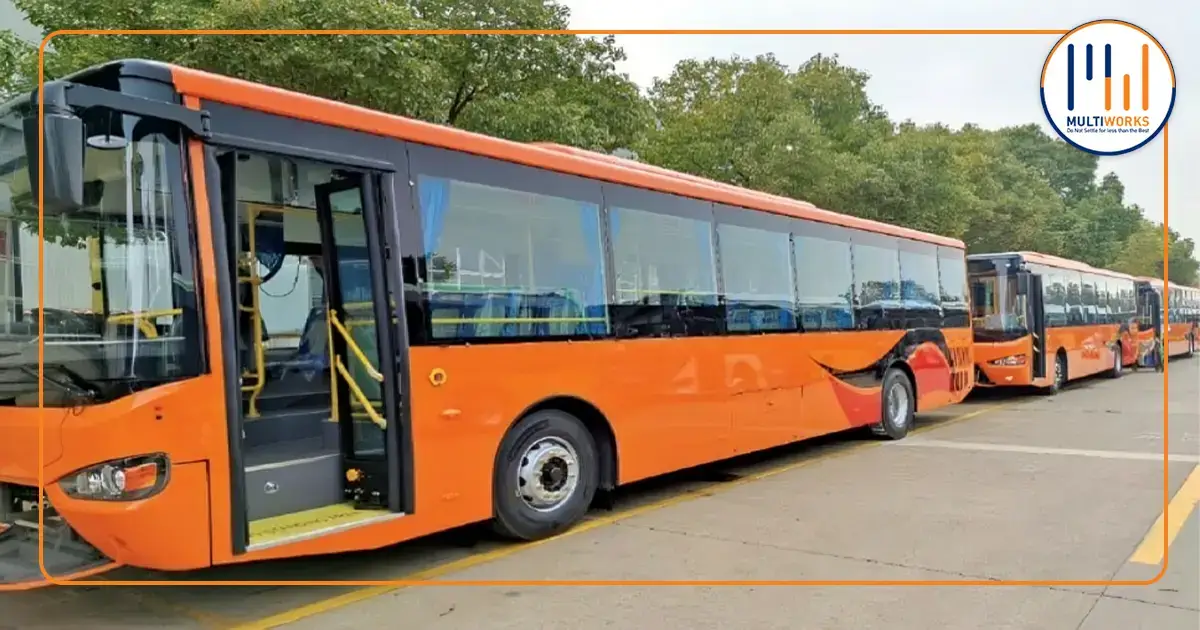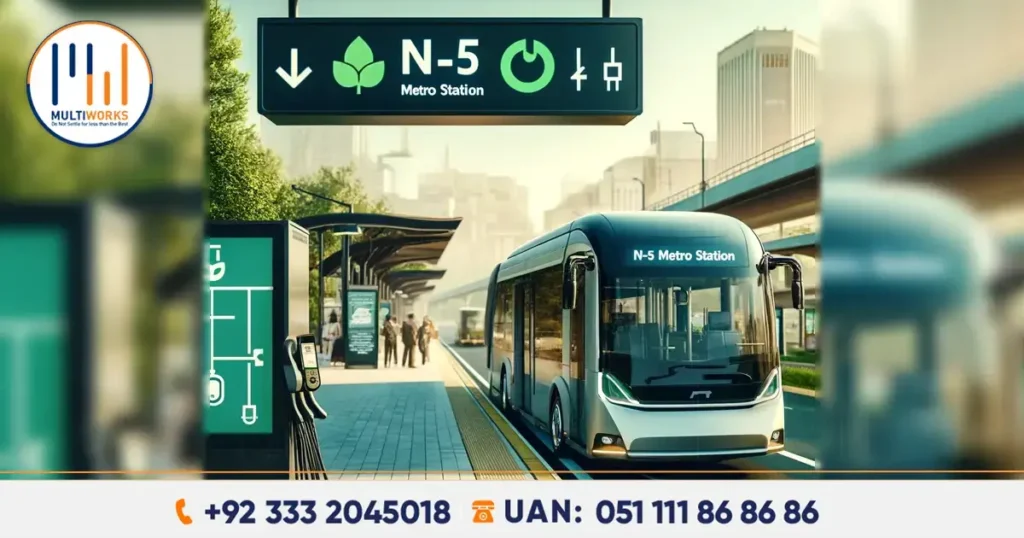ISLAMABAD – The much-anticipated public transport upgrade is set to enhance connectivity in the capital as 13 feeder buses will begin operations between the N-5 Metro Station and Sector B-17 starting January 1, 2025, as announced in the Senate.
During the Senate’s question hour, Interior Minister Syed Mohsin Raza Naqvi highlighted the Capital Development Authority’s (CDA) initiative to improve safe, reliable, and affordable public transport for the residents of Islamabad.
Read More: The Punjab government intends to expand the service of its metro buses
Key Highlights of the Announcement
1. Feeder Bus Routes Identified:
The CDA’s possibility study identified 13 potential feeder routes, including the critical route from N-5 Metro Station to Sector B-17.
2. Electric Buses for Sustainability:
The project will deploy electric buses, ensuring an eco-friendly and sustainable transport solution for the growing population of Islamabad.
3. Partnership with NRTC:
The National Radio & Telecommunication Corporation (NRTC) and the CDA have cooperated to purchase, run, and maintain these buses.
4. Bus Depot and Charging Infrastructure:
A state-of-the-art bus depot with charging infrastructure will be established at the N-5 Metro Station, ensuring continuous operations of the feeder buses.

Read More: Rawalpindi to Launch Electric Buses to Fight Air Pollution: A Game-Changer for Urban Mobility
Enhanced Public Transport Accessibility
This initiative is part of the government’s broader vision to promote public transport in Islamabad. The feeder buses will connect the N-5 Metro Station to Chungi No. 26 and extend to Sector B-17, a rapidly developing residential area.
The service is expected to significantly reduce travel time and provide a cost-effective alternative for daily commuters.
Benefits of the Feeder Bus Project
- Improved Urban Mobility: The feeder buses will integrate effortlessly with the existing Islamabad Metro Bus System, offering better accessibility for residents of Sector B-17.
- Eco-Friendly Transport: By using electric buses, the project supports the government’s commitment to reducing carbon releases.
- Cost-Effective Travel: The feeder buses aim to provide affordable travel options, reducing reliance on private vehicles.
Looking Ahead: January 1, 2025
As the project rolls out on January 1, residents can look forward to a modernized public transport system that prioritizes safety, convenience, and sustainability. The CDA’s collaboration with NRTC marks a significant step toward addressing Islamabad’s growing transportation needs.
For updates on this project and other public transport initiatives in Islamabad, stay tuned to MULTIWORKS, your trusted source for real estate and infrastructure news.




